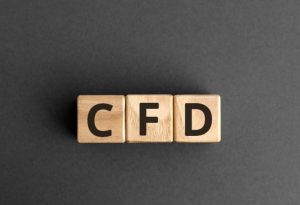Table of Contents
Ever since the Big Bang – no, not that one, the one in 1986 when the London Stock Exchange was deregulated and once again was able to compete with global markets like the New York Stock Exchange and the Tokyo Stock Exchange, the face of trading has been changing at an ever-rapid pace.
Part of this early revolution was the invention of Contract for Differences (CFD) trading.
What Is Contract for Differences?
CFDs enable traders to ‘bet’ on the movement of goods and services. CFD trading allows you to trade other CFDs, as well as stocks, commodities, indices, forex, and more.

A key difference between CFD trading and trading stocks and shares is that you do not at any point own, either wholly or partly, the asset you’re trading. Unlike a shareholder who is rewarded based on how well the company behind the share performs, a CFD trader is rewarded based on how much they’re able to sell the CFD for relative to the price paid.
How Do CFDs work?
In simple terms, when you buy a contract for differences, you’re entering into an agreement with a broker, not the owner of the asset. The profit in the CFD trading style comes from the difference between the buy price and the selling price and knowing when the right time is to sell, stick, or buy.
Is CFD Trading Good for Beginners?
CFD trading is popular for beginners because the buy-in amount is relatively low compared with other forms of trading. Short-term investing allows people to swiftly expand their money as the cost of living continues to rise. However, CFDs aren’t without their risks.

If you’re new to trading in general, the high leverage in trading options and the range of financial markets available can make CFD trading tricky to navigate.
Pros of CFDs
- Leverage: Because CFDs are leveraged, you only need to deposit a percentage of the total trade value and the remaining percent is ‘topped up’ by the broker.
- Going short: Unlike other forms of trading, CFDs are far more flexible.
- Tax implications: Because CFD trading is speculative, and you never own an asset, there’s no stamp duty to be paid on profits.
Cons of CFDs
- Leverage: Whilst the small buy-in is a benefit, should the CFD underperform, you’re liable to pay the broker should the margin dip below the agreed level. As such, you never invest more than you’re willing to lose.
- Overnight fees: Fees are incurred for every day past 10 pm that you hold a leveraged position.
- No ownership: When trading CFDs you don’t own any tangible asset. You merely own a contract that a share is based on.


